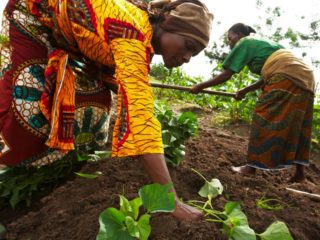Crop yield in Nigeria still below global average, says report
Despite Federal Government's claim that food production has
increased across the country, the 2017 wet season National Agricultural
performance survey report has shown that the overall farm yield is still below
global and African average for the agricultural subsector.
The study highlighted challenges that affected food
production during the 2017 wet season farming to include: climate change,
absence of government input support, insecurity, kidnapping, poor support for
agricultural extension.
The study carried out by the National Agricultural Extension
and Research Liaison Services (NAERLS) of the Federal Ministry of Agriculture
and Rural Development noted that the constraints affected all the subsector of
agriculture including crops, livestock, fisheries, aquaculture, and agro
forestry value chain.
The report which was launched recently in Abuja noted that
although there was increase in land area for food production, it only resulted
in 35 per cent increase in livestock and aquaculture.
Presenting the report, Prof. Mohammed Othman, Executive
Director, NAERLS, decried that the level of mechanisation in Nigeria is still
very low, as over 34 states are unable to access tractor services in 2017, due
to high cost of hiring services.
Besides not buying tractors for farmers, Othman said the
survey indicated that 28 states could not access tractor services for their wet
season farming due to unavailability, resulting into high cost of land clearing
activities.
The report identified maize as the most cultivated crop in
Nigeria, accounting for 5, 960, 920 hectares, producing 10, 813,980 metric
tonnes (MT) compared to 12,107,580MT in 2016, representing a 11.96 per cent
increase in national total output.




Comments
Post a Comment